Kia Says It's Still Betting On Sedans

While Kia has managed to add a fair number of crossovers to its lineup, successfully catching up to modern consumer tastes, it hasn’t scarified sedans to make that happen. According to the manufacturer, this is because high-riding utility vehicles fail to match the driving experience of a ground-hugging sedan — something Korean automakers have a keen interest in since Hyundai launched N-badged performance models and Kia dropped the Stinger on our heads.
Once famous for their commitment to budget-friendly models frequently mentioned in amber alerts, the duo now manufacture vehicles people actually want to buy at a price that’s frequently difficult to criticize. Following Hyundai/Kia for the last few years has been analogous to that scene in every teen drama where the awkwardly nerdy girl comes down the stairs for prom dressed to the nines and brimming with newfound confidence. Except in the Hyundai/Kia version, she winks suggestively and offers to pitch in for dinner.
Having convinced themselves that they’ve found a winning strategy, Koran automakers are doubling down on what’s worked already. That includes maintaining a clear distinction between crossovers and sedans — the latter of which Kia believes holds the secret to enjoying yourself behind the wheel.
“The driving experience between the crossover-type vehicle and the sedan type vehicle especially when you have someone like Albert Biermann [former head of Hyundai R&D and ex-BMW M chief engineer] in your stable can be pretty remarkable,” James Bell, Kia’s head of corporate communications, told CarBuzz in a recent chat.
“One of the reasons why the Kia Telluride has done so well is because people love the look of it. And then they drive it and realize for a large crossover it feels very coordinated. Not overly athletic like a BMW X5 M. It’s not that extreme. But you can enter a highway off-ramp a little faster than you should, and it’s okay. The car can handle it. Having that athletic feel and visceral connection is something we’re going to see emphasized and amplified in our future sedan offerings.”
Having driven numerous performance-engineered SUVs, your author will admit they hold some amount of charm. Most of that comes from mixing performance with practicality and the good feeling you get when you’re towering over the car next to you. They’re at their best when you’re stuck in traffic, forced to take a lot of junk somewhere, or have the opportunity to mash the accelerator down a long straightaway. You might be less impressed if you’ve ever been inside something that can really shimmy in the corners, though.
Korean brands seem to think SUVs and crossovers shouldn’t stray too far from their original purpose. Sure, we’ll probably see an N-badged Hyundai Santa Fe eventually. But the manufacturer doesn’t see it supplanting performance sedans. A similar logic flows through Kia, which is betting on sedans not being forever shunned. In fact, it’s thinking they may be due for a comeback.
“Many people in the sedan market are either downsizing from owning a big SUV that didn’t give them that engaging drive they were looking for, or maybe their family has changed, or looking for better fuel efficiency. Today’s modern sedans, especially with the Stinger’s sloping C-pillar space, you’re able to get a lot of cargo in there,” Bell said.
However, he acknowledged that crossovers remain the hot commodity for now.
“There aren’t many compromises other than not being one of the ‘cool kids’ with a new crossover on your street,” he continued. “But perhaps not being one of the ‘cool kids’ shows you are thinking through your purchase a little deeper and smart. That’s where the future Kia sedan success is going to come from.”
In addition to coyly suggesting Kia customers may boast a higher IQ than their peers (a sound marketing strategy), Bell also issued a subtle jab about how everyone is into crossovers because they’re basically the default and trendy option. If that generalization sticks, we’d see crossovers follow station wagons and minivans back into niche segments.
While we absolutely support Korea’s commitment to sedans and hot hatchbacks, it’s difficult to imagine crossover sales imploding anytime soon. Economic issues may suppress their take rate moving forward, giving sedans some leeway, but a complete turnaround would take years (and a renewed interest in alternative vehicle types). By the time the sedan is once again sitting atop the sales throne, Kia will have probably gone through a development cycle or two. Still, that could serve them well when (and if) the time comes, as other manufacturers will have to figure out a way to reposition back to more traditional product lines.
[Images: Kia Motors]

A staunch consumer advocate tracking industry trends and regulation. Before joining TTAC, Matt spent a decade working for marketing and research firms based in NYC. Clients included several of the world’s largest automakers, global tire brands, and aftermarket part suppliers. Dissatisfied with the corporate world and resentful of having to wear suits everyday, he pivoted to writing about cars. Since then, that man has become an ardent supporter of the right-to-repair movement, been interviewed on the auto industry by national radio broadcasts, driven more rental cars than anyone ever should, participated in amateur rallying events, and received the requisite minimum training as sanctioned by the SCCA. Handy with a wrench, Matt grew up surrounded by Detroit auto workers and managed to get a pizza delivery job before he was legally eligible. He later found himself driving box trucks through Manhattan, guaranteeing future sympathy for actual truckers. He continues to conduct research pertaining to the automotive sector as an independent contractor and has since moved back to his native Michigan, closer to where the cars are born. A contrarian, Matt claims to prefer understeer — stating that front and all-wheel drive vehicles cater best to his driving style.
More by Matt Posky
Latest Car Reviews
Read moreLatest Product Reviews
Read moreRecent Comments
- ToolGuy I am slashing my food budget by 1%.
- ToolGuy TG grows skeptical about his government protecting him from bad decisions.
- Calrson Fan Jeff - Agree with what you said. I think currently an EV pick-up could work in a commercial/fleet application. As someone on this site stated, w/current tech. battery vehicles just do not scale well. EBFlex - No one wanted to hate the Cyber Truck more than me but I can't ignore all the new technology and innovative thinking that went into it. There is a lot I like about it. GM, Ford & Ram should incorporate some it's design cues into their ICE trucks.
- Michael S6 Very confusing if the move is permanent or temporary.
- Jrhurren Worked in Detroit 18 years, live 20 minutes away. Ren Cen is a gem, but a very terrible design inside. I’m surprised GM stuck it out as long as they did there.



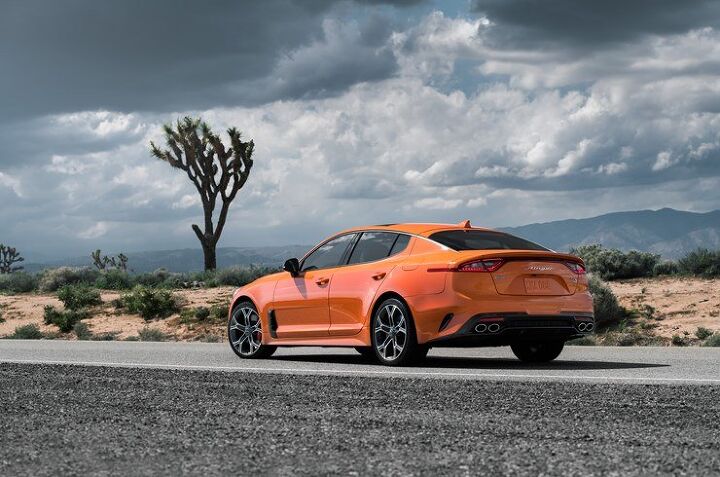
















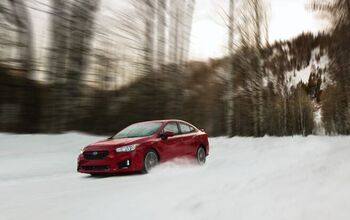
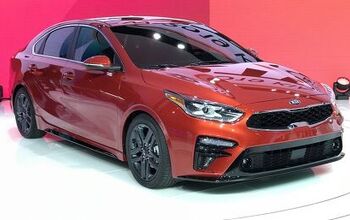




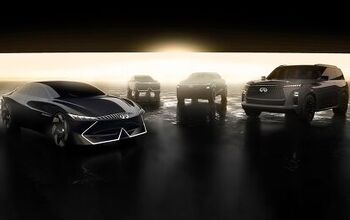

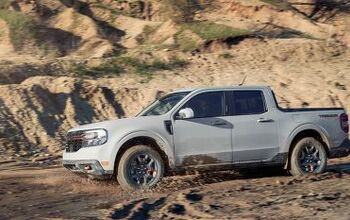






Comments
Join the conversation
Drove a Rio as a rental for a week. It was a fine little island car. Used very little gas and was easy to park on the tight streets. However, I would never own any of their products. I don't buy cars because they are trendy. I think a lot of the Koreans success is because it's now become trendy to own them, regardless of how good they are.
Still waiting on the Sonata N-line and the K5 GT (Optima name soon to be gone if the tea leaves are to be believed.)